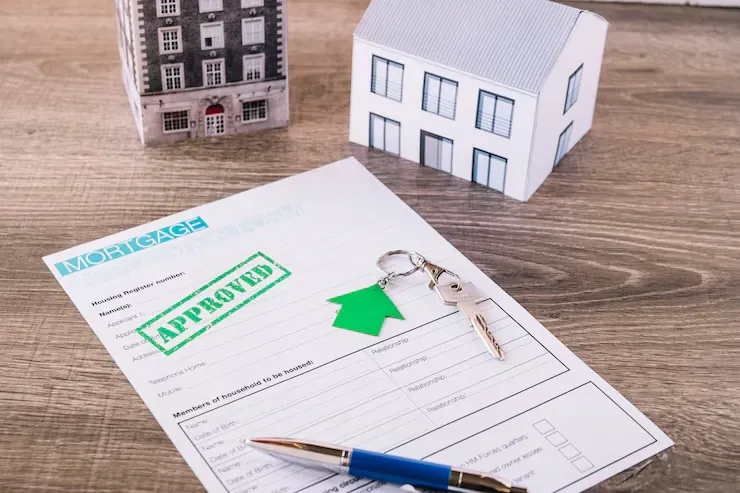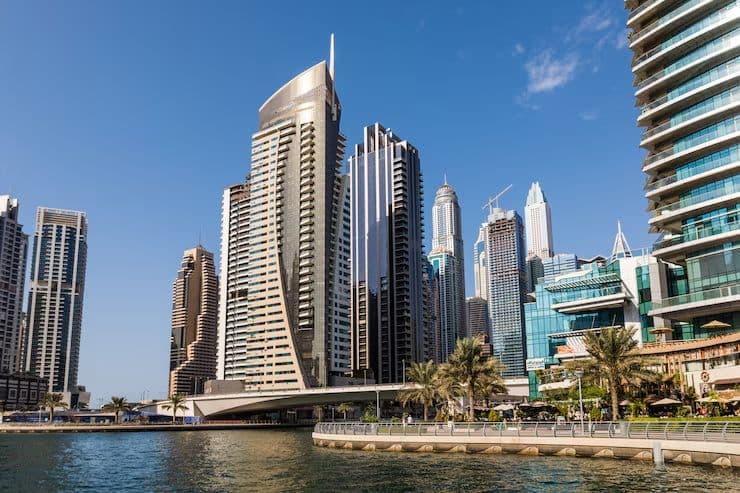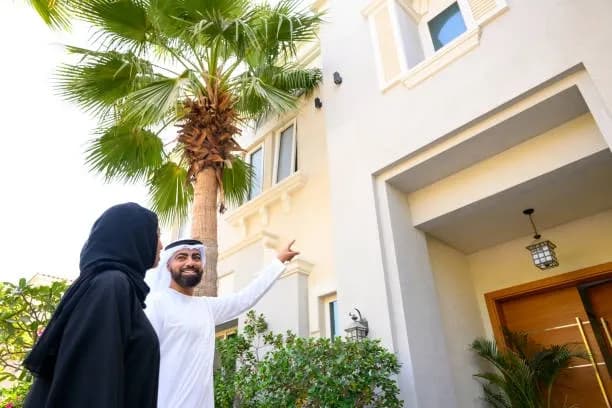When exploring Dubai’s dynamic real estate market, understanding the difference between freehold and leasehold property is essential. Both ownership types offer unique advantages depending on your goals. Whether you’re investing or buying a home, knowing the difference between a leasehold and a freehold helps you make informed decisions. This guide breaks down everything you need to know about freehold vs leasehold, from ownership rights to the best areas in Dubai.
Difference between freehold and leasehold
Simply put, the difference between a leasehold and a freehold lies in the extent of ownership rights. With freehold, you own the property and the land it sits on outright. Leasehold means you purchase the rights to occupy and use a property for a set number of years, typically between 30 to 99 years, while the ultimate ownership of the land remains with the landlord. This fundamental difference between freehold and leasehold property has far-reaching implications for property control, resale value, and inheritance.
What Is a Freehold Property?
A freehold property grants absolute ownership to the buyer. You not only own the physical structure but also the land it is built on. As a freeholder, you have the complete legal right to sell, lease, renovate, or pass on the property as part of your estate. In the UAE, especially since the 2002 decree allowing foreign nationals to own freehold properties in certain areas, this option has gained immense popularity among expatriate investors. The difference between freehold and leasehold becomes clear here: freehold provides perpetual ownership, giving buyers long-term stability and control.
What Is a Leasehold Property?
A leasehold property, on the other hand, grants ownership of the property itself for a fixed term, while the land remains under the ownership of a freeholder (often a developer or government entity). After the lease expires, ownership reverts to the freeholder unless an extension is negotiated. The difference between a leasehold and a freehold becomes especially relevant here, as leaseholders typically require the freeholder’s permission for major renovations or structural changes. Although leasehold properties tend to have lower upfront costs, understanding the price difference between freehold and leasehold is vital when calculating long-term value.
Freehold vs Leasehold in Dubai: 7 Differences
To better understand the difference between freehold and leasehold property in Dubai, consider these seven distinctions:
1. Ownership duration
Freehold offers perpetual ownership, leasehold is time-limited.
2. Land rights
Freehold buyers own the land and property; leaseholders only own the property temporarily.
3. Inheritance
Freehold can be passed on to heirs without restrictions; leasehold terms may complicate inheritance.
4. Resale potential
Freehold properties often have higher resale values due to full ownership.
5. Maintenance responsibilities
Freeholders have full control over maintenance; leaseholders may depend on landlords or developers.
6. Renovation rights
Freeholders can renovate freely, leaseholders may need approvals.
7. Cost implications
The price difference between freehold and leasehold often shows lower upfront prices for leasehold but possibly higher long-term costs when leases need renewal.

Where Can You Buy Freehold Properties in Dubai?
Dubai offers an extensive selection of freehold areas where foreign nationals can own property outright. These zones were created to encourage international investment following the 2002 decree. The difference between freehold and leasehold property is critical when choosing locations, as freehold zones provide buyers with both land and property ownership, ensuring long-term investment security.
Best Freehold Areas in Dubai
Some of the most sought-after freehold areas in Dubai include Downtown Dubai, Palm Jumeirah, Dubai Marina, Emirates Hills, and Tilal Al Ghaf. These locations are popular for their modern infrastructure, strategic location, and luxurious lifestyle offerings. Understanding the difference between a leasehold and a freehold can help you decide whether these areas align with your investment goals or personal preferences.
Best Non-Freehold Areas in Dubai
While non-freehold (leasehold) areas were traditionally limited to certain zones where only UAE nationals could purchase property, some leasehold areas are now available to expatriates through long-term leases. Popular leasehold communities include parts of Jumeirah, Umm Suqeim, and Deira. The price difference between freehold and leasehold often becomes apparent here, with leasehold properties in prime locations offering more affordable entry points compared to freehold zones.
Which Form of Property Should Be Chosen?
Choosing between freehold and leasehold depends on your investment horizon, budget, and intended use. If you’re looking for long-term stability, full ownership, and potential generational wealth transfer, freehold may be ideal. However, if your stay in Dubai is short-term or you’re seeking lower upfront costs, leasehold can offer flexibility. Carefully evaluating the difference between freehold and leasehold ensures your property aligns with your financial and lifestyle objectives.

Roofs and Roots: Where Your Property Journey Begins
Navigating Dubai’s property market can feel complex, but platforms like Roofs and Roots simplify the journey. From showcasing available freehold and leasehold properties to offering expert advice on ownership laws, they provide comprehensive resources for informed decision-making. Whether understanding the difference between freehold and leasehold property or comparing investment opportunities, leveraging professional guidance ensures confidence in every transaction.
FAQ
How Does Freehold Property Differ from Leasehold Property?
The core difference between freehold and leasehold is ownership rights. Freehold means perpetual ownership of both land and property, while leasehold grants temporary ownership of the property, with land reverting to the landlord after lease expiration.
What Are the Disadvantages of Leasehold?
Leasehold properties can limit control over modifications and require approvals for renovations. After the lease expires, ownership returns to the freeholder, potentially affecting resale value and inheritance. The difference between a leasehold and a freehold here emphasizes long-term ownership security.
Do You Lose Money on a Leasehold?
If the lease term diminishes significantly without renewal, property value may decrease, making resale challenging. However, careful planning and lease extension negotiations can mitigate this risk. Being aware of the price difference between freehold and leasehold helps in assessing long-term profitability.
How to Extend Leasehold Property in Dubai After Expiration?
Leaseholders can negotiate renewals with the freeholder. Terms, extension costs, and renewal procedures vary by property and governing body. Consulting legal experts and reviewing contracts in advance can smooth this process.
How Does a Free Zone Differ from a Freehold?
A free zone relates to business operations, offering companies 100% foreign ownership and tax benefits. It is unrelated to property ownership structure. While both terms denote ownership freedoms, their contexts, real estate vs business, are distinct.






